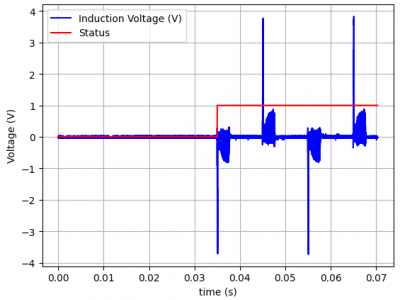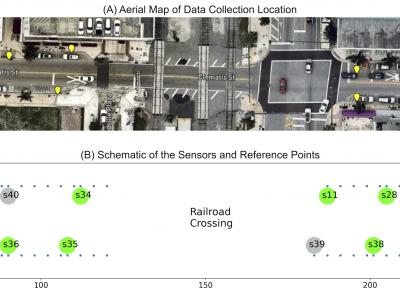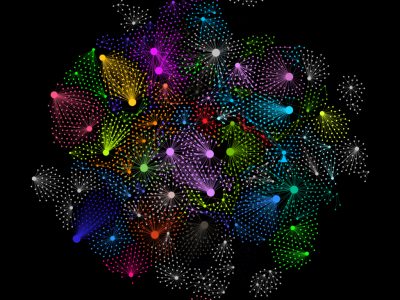*.csv

In the domain of gait recognition, the scarcity of non-simulated, real-world data significantly hampers the performance and applicability of recognition systems. To address this limitation, we present a comprehensive gait recognition dataset - GaitMotion- collected using built-in sensors of Android smartphones in an uncontrolled, real-world environment. This dataset captures the walking activity of 24 subjects (14 females and 10 males) above 18 years old and weighing at least 50 kg.
- Categories:
 209 Views
209 Views
SynGen6 is a synthetic genomic dataset that encompasses six distinct populations. We utilized Principal Component Analysis (PCA) and ϵ-local differential privacy (LDP) to generate synthetic samples. We then simulated phenotype vectors associated with significant SNPs, mirroring real-world gene-disease associations. We also generated synthetic SNPs to watermark the dataset enabling verification of outsourced computations. Lastly, synthetic relatives were created to support research on kinship inference and family-based genomic analyses.
- Categories:
 72 Views
72 ViewsThis is an example of a signal from an RCD reading from a 7W Led Lamp load. The data is titled with two status: 0 for normal condition (NC) and 1 for single fault condition (SFC). From the signal, It was evident that the peak voltage fluctuated over a certain time. The signal waveform displayed a positive peak and a negative peak alternatively in a comparable amount of time, while lacking any distinct cosine form or fixed values for the peak voltages. It was discovered through measuring that time period that it had the same frequency of 50 Hz as the source of the input.
- Categories:
 33 Views
33 ViewsThe TiHAN-V2X Dataset was collected in Hyderabad, India, across various Vehicle-to-Everything (V2X) communication types, including Vehicle-to-Vehicle (V2V), Vehicle-to-Infrastructure (V2I), Infrastructure-to-Vehicle (I2V), and Vehicle-to-Cloud (V2C). The dataset offers comprehensive data for evaluating communication performance under different environmental and road conditions, including urban, rural, and highway scenarios.
- Categories:
 767 Views
767 ViewsEndemic fish species are key components in seafood culinary excursions. Despite the increasing interest in leveraging technology to enhance various seafood culinary activities, there is a shortage of comprehensive datasets containing images of seafood used in artificial intelligence research, mainly those showcasing endemic fish. This research endeavors to bridge this gap by increasing the accuracy of fish recognition and introducing a new dataset comprising images of native fish for application in various machine-learning investigations.
- Categories:
 180 Views
180 Views
The dataset consists of uplink channel gains, downlink channel gains and uplink to downlink channel gains along with corresponding power allocations for uplink users and downlink users across all subcarriers. Additionally, it consists of NOMA decoding order for successful implementation of SIC at NOMA receiver. The number of UL users and DL users are considered as N=M=6, and subcarriers are S=9. Each column in the dataset is a sample for fading channel realization and it should be converted back to the matrix to compute sumrate.
- Categories:
 129 Views
129 ViewsA modern Wi-Fi-enabled device (e.g., a smartphone) can spontaneously emit unencrypted and anonymized signals to the environment in search of an access point. This signal is called a probe request. Since it is freely available in the open air, one can build a sensor from a Wi-Fi adapter to capture the signal. Once captured, its signal strength can be measured in the form of a Received Signal Strength Indicator (RSSI).
- Categories:
 143 Views
143 ViewsThis dataset is a network representation of authors linked to the publications they have authored or co-authored, collected from OpenAlex.org using the free, open-source tool available at https://openalex4nodexl.netlify.app/. It is provided as a CSV flat file, formatted for use with NodeXL, a popular tool for social network analysis.
- Categories:
 162 Views
162 Views
The SINEW (Sensors in Home for Elderly Wellbeing) dataset consists of 15 high-level biomarker features, derived from raw sensor readings collected by in-home sensors used for predictive modeling research: SINEW Weekly Biomarker.
This dataset was collected for a study focused on the early detection of mild cognitive impairment, providing an opportunity for timely intervention before it progresses to Alzheimer's disease.
- Categories:
 121 Views
121 Views
The SINEW (Sensors in Home for Elderly Wellbeing) dataset consists of 15 high-level biomarker features, derived from raw sensor readings collected by in-home sensors used for predictive modeling research: SINEW 15 - Monthly Biomarker.
This dataset was collected for a study focused on the early detection of mild cognitive impairment, providing an opportunity for timely intervention before it progresses to Alzheimer's disease.
- Categories:
 119 Views
119 Views



